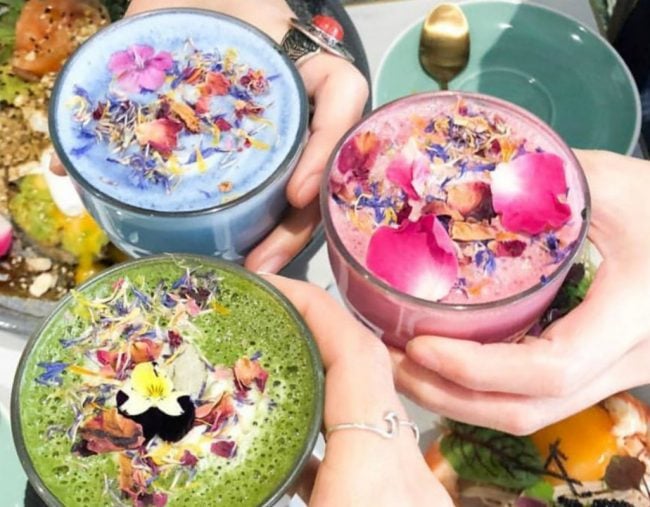
Head into any café these days and you’ll be spoilt for choice, it’s now pretty standard to face a long list of exotic ‘lattes’ that boast superfood ingredients and health healing properties.
Turmeric, matcha, beetroot and even charcoal lattes are now all reasonably common and despite their ‘latte’ name, none of these new-age drinks contain coffee or are made with an espresso machine. But do these drinks deserve the health halo they’ve recently been granted?
Turmeric lattes.
Known as the ‘golden latte,’ these drinks are most commonly made from a blend of turmeric, cinnamon, ginger and pepper. You might think that sounds a bit like a starter pack of spice for a curry, but they’re popping up more and more on café menus as a popular choice for pregnant women, those avoiding caffeine or hoping for a morning health kick.
Turmeric has risen to popularity as it contains the active compound curcumin, a natural antioxidant with anti-inflammatory properties and proposed benefits for those suffering from arthritis, Alzheimer’s and heart disease. But to access these benefits of curcumin, you need to be consuming at least 5g of turmeric daily and in reality, most ‘golden lattes’ contain less than 2g of turmeric, so you’d need to be downing two to three of these drinks a day for any therapeutic benefit.
Nonetheless, to get the most from your drink, request that it isn’t heated above 75°C to preserve the curcumin and choose a variety which contains black pepper, as this will help to increase the bioavailability of the active ingredient.
View this post on Instagram

Top Comments
And my triple shot flat black with five sugers?